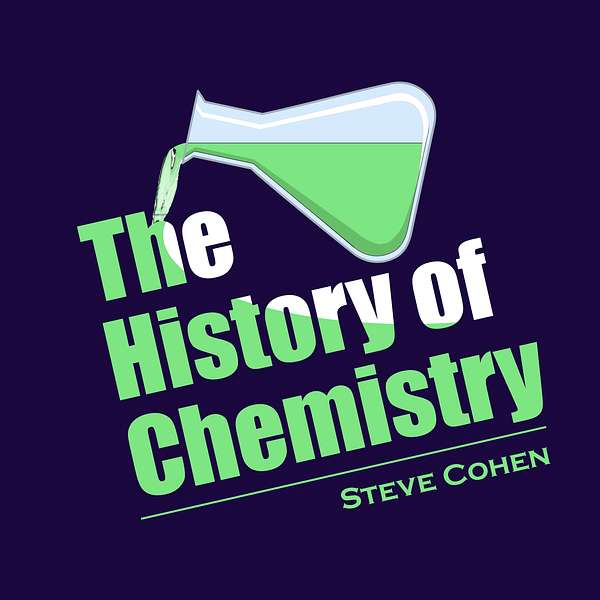
The History of Chemistry
Chemistry is everywhere, and involves everything. But how did chemistry get to be what it is? I'm Steve Cohen, a chemist and writer, bringing you The History of Chemistry. This podcast explores the development of chemistry from prehistoric times to the present, including the people and societies who made chemistry what it is today. The History of Chemistry is for you, whether you hated chemistry in high school, or got a PhD in inorganic chemistry. We'll explore how chemistry affected art, music, language, politics and vice-versa. Whether it's ancient Greek philosophers, medieval alchemists, or modern laboratory apparatus, it's all here. Don't forget to support my series at https://www.patreon.com/thehistoryofchemistry !
The History of Chemistry
163: Basic Fuel
•
Steve Cohen
•
Episode 163
Use Left/Right to seek, Home/End to jump to start or end. Hold shift to jump forward or backward.
In which we talk about the history of using ammonia, the nitrogen analog of methane, as a fuel. We start two centuries ago with Goldsworthy Gurney, move to the mid-19th century when horseless carriages began to appear in Europe. World War II spurred necessary fuel adjustments to public transportation. We then examine post-war research. We tackle some pros and cons of using ammonia as fuel, as well as the ecological spectrum of ammonia sources.
- Support my podcast at https://www.patreon.com/thehistoryofchemistry
- Tell me how your life relates to chemistry! E-mail me at steve@historyofchem.com
- Get my book, O Mg! How Chemistry Came to Be, from World Scientific Publishing, https://www.worldscientific.com/worldscibooks/10.1142/12670#t=aboutBook